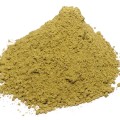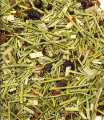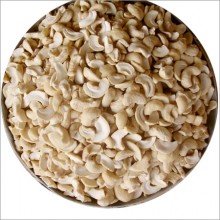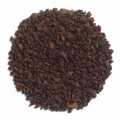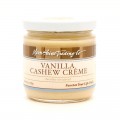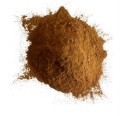 Loading... Please wait...
Loading... Please wait...- Home
- About Us
- Shipping, Returns & FAQ's
- Contact Us
-
For Your Information
- Canadian Customers Have a Choice if Shipping Via UPS
- Aura Cacia Homemade Aromatherapy Recipes
- Bella Nella Altered Art & Paper Crafts Blog
- Forms of Herbal Preparations
- Laundry Tips To Conserve Energy Blog from The Laundress
- The Story of Frontier Natural Products Co-Op
- Sovereign Silver Hydrosol and Aloe Protocol Stops Downward Spiral of Gut Dysbiosis
- Disclaimers
- Recommended Links
- RSS/Recent News
- The Story of Typhoon Housewares
- Reviews/Testimonials
- Raw Ingredients for Mfg
Cashew Nut Halves Unsalted Raw/Roasted Bulk
Product Description
Cashew nuts, a richly sweet product of the cashew tree, have gained popularity in North America and Europe not only for their succulent flavor but for health benefits, too. Whether roasted, salted, sugared or covered in chocolate, the cashew nut, often used as a flavorful complement to appetizers, main dishes and deserts, packs a mix of nutrients and minerals not found in many common foods.
Cashew nuts, native to equatorial South America, are actually seeds, found growing on the end of the cashew apple, an edible and nutritional treat.
Sometimes called “nature's vitamin pill,” cashew nuts, which now rank #1 among nut crops in the world with 4.1 billion pounds produced in 2002 , have been used to promote wellness for centuries.
Medical Benefits
The cashew nut, a popular treat found across the world, is jam-packed with nutritional content. It packs 5 grams of protein per ounce and high levels of the essential minerals iron, magnesium, phosphorus, zinc, copper and manganese, which are utilized in holistic health solutions and healthy diets.
Diet and Weight Management
Cashew nuts do have a relatively high fat content (12 grams per ounce, 2 grams saturated fat), but it is considered “good fat.” This is due to the agreeable fat ratio in the nut, 1:2:1 for saturated, monounsaturated, and polyunsaturated, respectively, which scientists say is the ideal ratio for optimal health.
Cashew nuts also have a fatty acid profile that contributes to good health through phytosterols, tocopherols, and sqaulene, all of which lower the risk of heart disease, combined with the nut's zero percent cholesterol content.
Even with the relatively high fat content, cashew nuts are considered to be a “low-fat” nut. In fact, cashew nuts contain less fat per serving than many other popular nuts commonly found in grocery stores and health food stores, including almonds, walnuts, peanuts and pecans.
Recommendations vary for cashew nut consumption in diet and weight loss. Cashew nuts have a high energy density and high amount of dietary fiber, both which have been attributed to a beneficial effect on weight management, but only when eaten in moderation
Cardiovascular and Circulatory Health
With no cholesterol, a rarity for such a tasty and pleasing treat, cashew nuts are a healthy fat food for heart patients. And because of their high levels of monounsaturated fatty acids, they also help support healthy levels of low good (HDL) cholesterol.
Magnesium
The cashew nut's high magnesium content also takes the credit for its healthy heart qualities. In their raw form, cashews contain 82.5 milligrams of magnesium per ounce, or 21 percent of the daily recommended value of the heart healthy mineral, which also protects against high blood pressure, muscle spasms, migraine headaches, tension, soreness and fatigue.
Magnesium also works with calcium to support healthy muscles and bones in the human body.
Antioxidants
And with a high copper content, too, cashew nut consumption helps the body utilize iron, eliminate free radicals, develop bone and connective tissue, and produce the skin and hair pigment melanin.
Copper, which is an essential component of the enzyme superoxide dismutase , is vital in energy production and antioxidant defense, producing greater flexibility in blood vessels, bones and joints.
Diabetes
Recent clinical trials have shows that cashews and other nuts work with a person's lipid profile to have a beneficial effect on those with diabetes or at risk for diabetes.
And with 37.7 percent of the daily recommended value of monounsaturated fats, cashews can reduce triglyceride levels in diabetics, protecting them from further complications.
Integrating frequent nut consumption into your diet, especially raw cashews, may lower the risk of developing Type 2 Diabetes, the most commonly diagnosed form of diabetes in America today.
Gallstones
All nuts, including the cashew nut, have been associated with a reduced risk of gallstone disease.
According to the Nurses' Health Study, looking at the dietary data of 80,718 women, integrating at least one ounce of nuts a week, such as cashews, gives women a 25 percent lower risk of developing gallstones.
Dental Health
Research has also shown that chemicals in cashew nuts kill gram positive bacteria, a pervasive mouth affliction that causes tooth decay, acne, tuberculosis and leprosy.
Eating cashew nuts at moderate levels, some say, can eliminate abscessed teeth, though this has not been proven yet by proper clinical trials.
Topical Uses
While the cashew nut is most enjoyed when eaten, it also possesses astringent qualities that are now used in topical creams and gels.
A Philippine scientist who has made a career out of studying the health benefits of cashew nut extract markets the extract in a cream for warts, moles and other skin growths.
The Philippine-produced cream is also reportedly effective on basal cell carcinoma, the most common type of skin cancer, though this too is not yet available in the U.S.
Ensure Freshness
Always check your cashews for freshness before you dig in. While cashews have a high amount of the stabilizing oleic acid, a monounsaturated fatty acid, they should always be stored in a tightly sealed container in a cool, dry place.
And don't eat too many at once. Because of their high fat content, over consumption of cashew nuts can cause unwanted weight gain in individuals. The oxalates in cashews cal also become concentrated in body fluids, crystallizing and causing health problems in people with preexisting kidney or gallbladder problems.
With cashew nuts, moderation is key in reaping the health and flavor benefits of nature's treat.
Nutritional Information:
Cashew nuts are beneficial for your health as they contain Heart-Protective Monounsaturated Fats, Copper, and Magnesium
A quarter-cup of cashew nuts supplies:
- 37.4% of the daily recommended value of monounsaturated fat
- 38.0% of the daily recommended value for copper
- 22.3% of the daily recommended value for magnesium
Cashew Nuts Contain Heart-Protective Monounsaturated Fats
- Cashews have a lower fat content than most other nuts
- Cashews contain primarily unsaturated fatty acids, 75% of which is oleic acid, the same heart-healthy monounsaturated fat found in olive oil
- Oleic acid found in Cashews promotes good cardiovascular health
- Monounsaturated fats reduce high triglyceride levels which are associated with increased risk for heart disease
Eating cashews provides the body with a good source of Copper. Copper plays a role in a wide range of physiological processes including :
- Iron utilization
- Elimination of free radicals
- Development of bone and connective tissue
- Production of the skin and hair pigment called melanin
- Energy production
- Antioxidant defenses
Cashews are a great source of Magnesium. Adequate levels of Magnesium in the body:
- Ensures healthy bones
- Helps lowers blood pressure
- Prevents heart attacks
- Promotes normal sleep patterns menopausal women
- Reduces the severity of asthma
Nutrition Facts
Serving Size 1 oz (28.3 g)
Amount Per Serving
Calories 156 Calories from Fat 112
% Daily Value*
Total Fat 12.4g, 19%
Saturated Fat 2.2g, 11%
Polyunsaturated Fat 2.2g
Monounsaturated Fat 6.7g
Cholesterol 0mg, 0%
Sodium 3mg, 0%
Total Carbohydrates 8.5g, 3%
Dietary Fiber 0.9g, 4%
Sugars 1.7g
Protein 5.2g
Vitamin A 0% • Vitamin C 0%
Calcium 1% • Iron 11%
* Based on a 2000 calorie diet
History
You never see cashews for sale in the shell because between the outer and inner shells covering the nut is an extremely caustic oil. The outer shell must be roasted or burned off with the oil (the smoke is also an irritant). The kernels are then boiled or roasted again, and a second shell is removed. Oil from cashew nut shells is used in insecticides, brake linings, and rubber and plastic manufacture. The milky sap from the tree is used to make a varnish.
Also known by the botanical name Anacardium occidentale. The cashew family includes: cashew, sumac, varnish tree, smoke tree, mombin, kafir plum, mango, pistachio, Peruvian pepper tree and poison ivy.
Cashews are native to the Amazon region, and were introduced to India by the Portuguese in the 16th century. Today, India and East Africa are the world's largest producers.
You Recently Viewed...
Currency Converter
Choose a currency below to display product prices in the selected currency.




